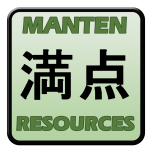My favourite time of year is January, not only for the lazy days of summer beach swims and books, but for the optimism that a fresh start to the year offers. It is the time of year when I get overly excited about reorganizing cupboards and decluttering. One January, I binge-watched “The Home Edit” series with Joanna Teplin and Clea Shearer and drooled over the organised spaces. I particularly loved the clear tubs that perfectly fitted inside a larger rectangular tub. Like a puzzle, you could mix a combination of different sized tubs and they would all fit neatly inside the larger tub.
This inspired me to think about our Assessment tasks. (Yes, I know I am weird!)
Each year, your cohort is different. I am finding that it is not only the language knowledge and skills I need to consider but my students mental resilience readiness for the type and sequence of assessment tasks I provide them. Creating new assessment tasks takes time but what if, like The Home Edit, I had a cupboard of interchangeable tasks that could be swapped in and out to better suit my current cohort.
Let’s consider the current Year 11 Japanese Beginners Tasks in the Manten Resources suite. You can read more about these tasks via the links.
Language camp experience Version 1
Language camp experience Version 2 (new)
These tasks could be weighted and combined in a variety of ways with or without a formal preliminary exam. Don’t forget you don’t have to include a formal preliminary exam in your assessment task schedule. You can still provide students with that experience as part of your classwork or wait until Year 12 and really focus on coping with the pressure after they have developed skills in answering to an exam standard in less pressure environments such as single in-class tasks.
The Original Combination
| Home Stay Preparation | Language Camp Experience | Preliminary examination* | ||
| Listening | 20 | 10 | 30 | |
| Reading | 20 | 10 | 30 | |
| Speaking | 10 | 10 | 20 | |
| Writing | 10 | 10 | 20 | |
| Total % | 30 | 30 | 40 | 100 |
The Traditional Combination
| Home Room | Online Friends | Preliminary examination* | ||
| Listening | 10 | 5 | 15 | 30 |
| Reading | 15 | 15 | 30 | |
| Speaking | 5 | 10 | 5 | 20 |
| Writing | 10 | 5 | 5 | 20 |
| Total % | 25 | 35 | 40 | 100 |
The Modern Combination
| Home Room | Language Camp Experience | Online Friends | ||
| Listening | 15 | 15 | 30 | |
| Reading | 15 | 15 | 30 | |
| Speaking | 5 | 15 | Omit speaking section of task | 20 |
| Writing | 10 | 10 | 20 | |
| Total % | 30 | 30 | 40 | 100 |
*Note: Manten resources do not make Preliminary exams. These can be purchased from JTAN.
Each of these tasks are stand-alone tasks and do not require the user to be using Jblog 4 textbook or the Kaeru Project text type development resources. For those teachers who are using these resources though the general overlap between each task is listed below.
Each of these tasks are stand-alone tasks and do not require the user to be using Jblog 4 textbook or the Kaeru Project text type development resources. For those teachers who are using these resources though the general overlap between each task is listed below.
| Task | Jblog 4 chapters & topics | Kaeru Project |
| Home Room | JB4 CH1 & 2
plus describing simple common activities and special events e.g. going to school, visiting a café, celebrating Mother’s day. |
Course 1 – Diaries & Dialogues |
| Online Friends | JB4 CH3 & 4
plus describing school camps and excursions, eliciting invitations for simple plans on the weekend or after the HSC, interpreting purpose and intention in texts. |
Course 2 – Casual Emails and Letters |
| Home Stay Preparation | JB4 CH1 & 2
plus responding to questions about yourself and finding common ground between yourself and others |
Teachers may like to introduce basic aspects of letter writing from Course 2 – Casual Emails and Letters but completion of the booklet is not necessary for this task. |
| Language Camp Experience
Version 1 or Version 2 |
JB4 CH3 & 4
plus discussing preferences, school life, aspects of Japanese learning and culture |
Course 1 – Diaries & Dialogues |
This year, take a fresh look at your Assessment Task schedule and don’t be afraid to repurpose tasks in new ways adjusting weightings, or adding or removing skills to fit your new pathway to knowledge and skill acquisition.
